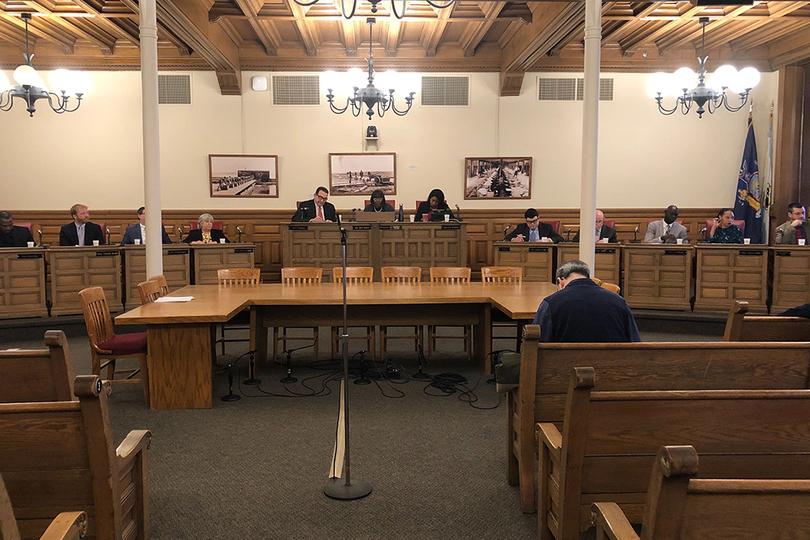Common Council approves developing affordable housing

The council approved development subsidies to fund the construction of 50 single-family homes. Austin Lamb | Co-Copy Chief
The Syracuse Common Council approved affordable housing development and took steps to address lead poisoning in the city at Monday’s council meeting.
The council approved an application to the New York State Affordable Housing Corporation for $2 million to provide development subsidies to build and sell 50 single-family homes for first-time home buyers.
The program will allow for homes to replace vacant lots and bring families to the city, said Latoya Allen, of the 4th district.
“A house is a form of stability,” Allen said after the meeting. “You give people an opportunity to own a home and something they can take some pride into instead of paying ridiculous amounts of money on rent when you get nothing in return.”
The qualifying income to purchase one of the houses would be about $44,000 for an individual and about $55,000 for a family of four, said Deputy Mayor Sharon Owens after the meeting.
The city will also create a draft generic environmental impact statement to assess lead paint in Syracuse homes and will modify its building ordinances to include lead testing and abatement.
The federal government banned the commercial use of lead paint products in 1978. About 91% of homes in Syracuse were built prior to 1980, according to the United States Census. Lead poisoning has caused higher rates of learning disabilities among children who live in the city, Allen said.
The city would be required to follow the draft generic environmental impact statement process to determine the impacts of introducing a lead ordinance, Owens said. Grant funding to address the lead issue requires an environmental impact statement, she said.
The city wants to empower code inspectors to check for the presence of lead in homes, Owens said. The building code would require homeowners to address lead violations, she said.
The council approved a 30-day public comment period for the ordinance. Residents can ask questions about proposed updates to the building code at an open session next month, Owens said.
Other business
Councilors accepted a $310 donation from Syracuse University’s Alpha Epsilon Phi Iota sorority chapter to support programs and activities at Wilson Park Community Center, located near Interstate-81.
Two million dollars from the New York State Financial Restructuring Board will be used to purchase and install an automated timekeeping system for the city. The Syracuse Police Department and executive personnel will pilot the program in fall 2020.
The city’s timekeeping and budgeting are not up to 21st-century standards, Owens said.
“This is going to be huge. It will help us do a better job of keeping track of overtime, which is a huge expense for us.”




